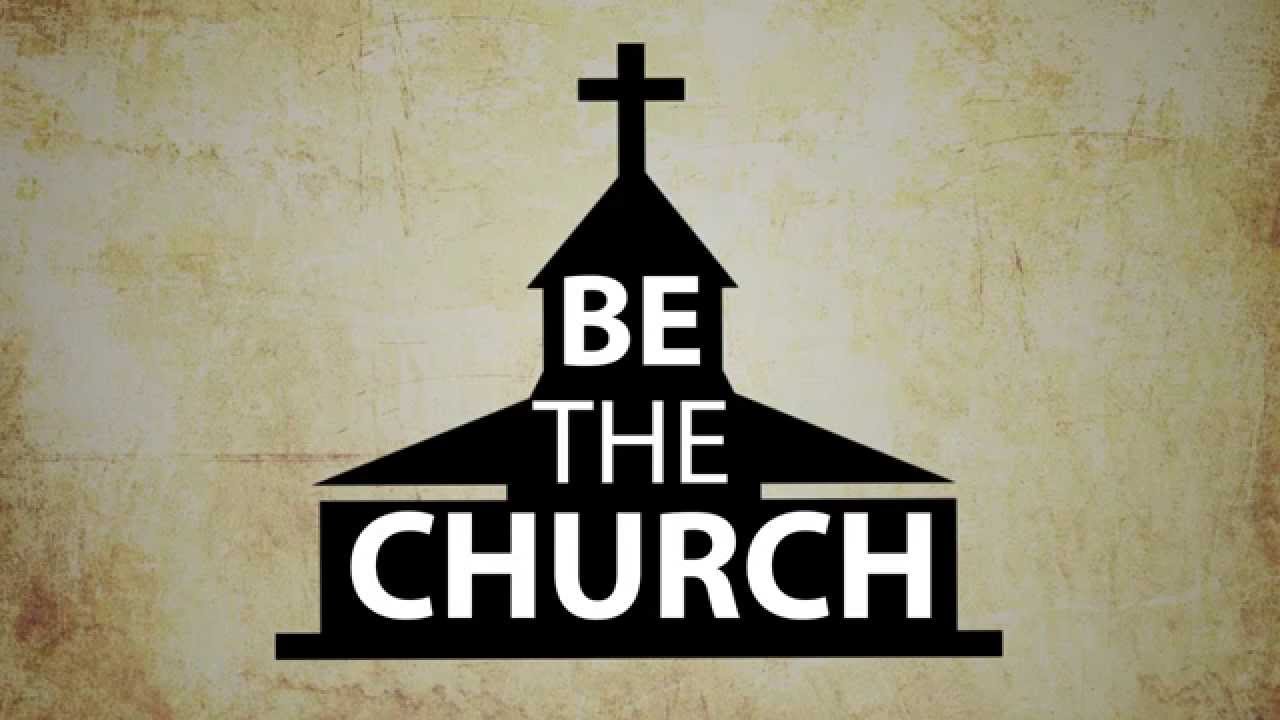All of us are guilty of talking a lot about what we don’t like about the church, but we don’t often talk  about what the church actually is. A common definition in the dictionary describes the church as “a building for Christian worship”. It’s a wonder how anyone might come to this conclusion reading the New Testament description of churches who seem to be without buildings for the most part. It goes without saying that the church is more than a building, but what “more” means is rarely asked because we assume understanding when we shouldn’t . And even if someone offers an answer, it’s often colored by traumatic Sunday school experiences, mean people, weird people, cliquey people, juvenile legalisms, cheesy music, deathly boring sermons, terrible leaders, and/or meaningless traditions. It ends up being more of a diatribe than a definition.
about what the church actually is. A common definition in the dictionary describes the church as “a building for Christian worship”. It’s a wonder how anyone might come to this conclusion reading the New Testament description of churches who seem to be without buildings for the most part. It goes without saying that the church is more than a building, but what “more” means is rarely asked because we assume understanding when we shouldn’t . And even if someone offers an answer, it’s often colored by traumatic Sunday school experiences, mean people, weird people, cliquey people, juvenile legalisms, cheesy music, deathly boring sermons, terrible leaders, and/or meaningless traditions. It ends up being more of a diatribe than a definition.
These negative experiences have led to an increasing number of disgruntled, disillusioned, and the disconnected believers are hopping from church to church OR leaving the local church all together, searching for a new version of “church” that they hope will provide a more fulfilling spiritual (read emotional) experience. Some have launched their own “spiritual communities” in all shapes and sizes. Some start with warped authoritative structures and become productive cults, while others reject all authority and become unproductive communes. Others reject all sense of organization and structure, twist one verse to justify their gatherings at Starbucks or the golf course: “where two or three are gathered in my name, there am I among them” (Matthew 18.20) And because most of these searches start with man at the center (What satisfies me), and not Jesus (What glorifies Him) their pursuit ends in participating or building all kinds of new “spiritual” communities that are the furthest thing from a church, most of which are unbiblical and emotionally charged, and where everything becomes redefined by their desires, even Scripture itself.
BUT…I’m not writing about those who leave church, those who launch their “spiritual communities”, or those who go the church of “wherever” on the golf course. Despite the fact that many don’t know for certain what the church is (though many seem to know exactly what they don’t like it about it), a lot of them still stay. And “stay” is all that many people do believing they are a part of it simply because they attend it. But attending church doesn’t make you a part of it, anymore than owning a gym membership makes you a triathlete. There is a difference between staying IN the church and staying AT the church. One is truly invested in gospel community living out all of the “one another” commandments Jesus gave. The other takes pride in their perfect attendance or membership covenant while failing to actually understand the nature of church all together. Are you truly a sibling in a local family of God or just carrying the “family name” around like some sort of cool piety badge?
Here are seven ways to know that you are in fact IN the church, and not just AT it.
1. You know the family. Do you know the names of your pastors? Can you name five other people in this one family you are a part of, excluding those already know? This isn’t a measure of spirituality, rather, it’s a simple question. And while you can’t be expected to know the names of everyone…do you know someone? Why or why not? And then…do you know anything more than their names?
2. You are known by the family. Does anyone know your name? Why not? Obviously, getting to know people takes time, so those who are new to a church don’t feel bad. But how much time does it take..really? 1 month? 6 months? What about you who have been a church for several years and still are relatively unknown–not because of what you have done…simply for who you are? This isn’t a popularity contest, rather, a great indicator as to whether you work hard NOT to engage and to hide away. Are there even five other people who know you and your family? That know your story? Have you confessed your sins to them, shared your struggles, asked for prayer, or otherwise exposed your heart…to anyone?
3. You serve the family. Every family has chores, things to make sure that the family is protected and productive. Have you every shared in the family chores? Again, this is not a guilt trip but a question about whether or not you’ve ever taken ownership in the family? I’m not talking about doing the things everyone likes to do, the things that come easy for you. Are you helping out with the needs of the church, the routine things, the practical things, the things that no one wants to do, but the things that must be done. Have you positioned yourself in such a way to sacrifice as little as possible assuming that someone else will get it done? Are you serving the family or taking it for granted?
4. You fulfill your role in the family. The church is the body of Christ with many parts. God has given the body different parts for a reason. They are all uniquely designed and equally necessary. The body can function without some parts, but it ends up being slower, weaker, and uglier. While there are chores for everyone to do, there are also specialized roles based on time, gifting, resources, and experience that only YOU can fill. Ask yourself, whether your absence makes the body less; and whether your presence makes the body more. If the church disappeared from the community tomorrow, would it be felt? If YOU disappeared from the church tomorrow, would it be felt?
5. You spend time with the family. There isn’t a hall monitor marking tardies, and there are not gold stars for perfect attendance. But consider, how much your view of a “successful” of a Sunday morning is derived from simply connecting relationally with the family (as opposed to good music, good sermon, good coffee, etc.). Are you the one who is late to arrive and quick to leave? Why? How much time (if any) you meet with your brothers and sisters outside of Sunday morning? Do ever gather with the church when it’s not “church?”
6. You support the family. Are you sharing in the work…really sharing? Are you supporting with all that God has given you–your time, your energy, your resources, your money? Are you supporting with intention or is it always spontaneous? Are you supporting generously or sparingly? Are you supporting sacrificially or comfortably? Are you supporting cheerfully or bitterly? If the mission of the church is a journey, are you carrying your load and helping others with their burdens?
7. You enjoy the family. Quite simply, is the church a weekly event you attend (unless something better comes along) OR a weekly reunion you look forward to all week (that you’d wouldn’t miss for the world)! Despite the dysfunction, the weird uncles and crazy cousins, do you enjoy your family so much you want to know more about it? Do desire to pray for your brothers and sisters? Do you hurt when the family hurts? Do you laugh when it laughs? Do desire to speak of the family with pride? Do you want others to be a part of it? Are you enjoying this family of families?
Obviously, this is an incomplete list and is NOT intended as some sort of piety rubric for church involvement. My hope is that we will all consider whether we are truly a part of a family or pretending to be. I realize that there are many who have been hurt by other “families” in the past and, as a result, you’ve made personal covenants to protect yourself from ever being hurt again. The result is you are AT church for a long time.. Know that, with all its dysfunction, it is God’s will for you to be more than a warm body, but to be IN a healthy biblical gospel-centered church.




